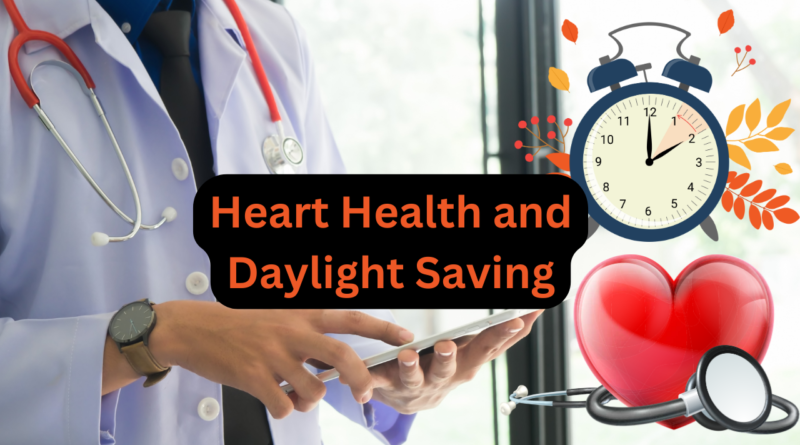Heart Health and Daylight Saving: Unveiling the Truth from Mayo Clinic’s Study
“Heart Health and Daylight Saving DST” is a topic of controversy that changes with the clocks. Dr. Benjamin Satterfield’s newest research at the Mayo Clinic defies preconceived notions and offers startling new information about how DST affects cardiovascular health. Let’s examine the thorough study, dispel myths, and consider the wider ramifications.
The collective moan that goes along with Daylight Saving Time (DST) raises concerns about how it affects our hearts throughout the annual dance of time adjustment. Over 36 million adult health records were examined for heart-related incidents during the spring and autumn transitions as part of a countrywide research conducted by the Mayo Clinic. The results cast doubt on earlier theories on Heart Health and Daylight Saving and change the way people talk about how DST affects health.
Challenging the Past: Heart Health and Daylight Saving
A bleak picture was painted by earlier research that suggested a link between DST transitions and an increase in heart attacks. Yet, research from the Mayo Clinic presents a another viewpoint on Heart Health and Daylight Saving. Senior researcher Dr. Bernard Gersh believes that the DST conversation need not be dominated by worries about heart health. The report casts doubt on presumptions and refocuses discussion on cost and energy-saving measures.
“We looked at five years across the U.S., and what we found is that it’s unlikely that there is a clinically meaningful difference in cardiovascular health due to daylight saving time”
– Benjamin Satterfield, M.D., Ph.D., a cardiovascular diseases fellow and lead author of the study
Broader Implications:
The main emphasis of the Mayo Clinic study was cardiovascular health, but it also explored possible implications on mental health and auto accidents. This creates opportunities for further study on Heart Health and Daylight Saving to comprehend the wider effects of DST on public health. The results indicate that the impacts on health are negligible, especially for the heart, which emphasizes the necessity to make choices on the continuation or elimination of DST on comprehensive factors.

The Impact Beyond Hearts:
Research from the Mayo Clinic illuminates the impact of DST on accident rates and mental health in addition to heart health. The current discussion over the need for DST may now shift to the advantages of energy saving and the economy. The study gives us comfort in knowing that, at least in terms of heart health, the impact is negligible when we change our clocks.
“When decisions are made about whether to abolish daylight saving time, there is no need to take concerns regarding heart health into account”
– Bernard J. Gersh, M.B., Ch.B., D.Phil., cardiologist and senior author of the study
Expert Insights and Tips:
Additional insights from the American Heart Association add depth to the discussion, pointing out the potential risks associated with sleep disruptions during the time change. Practical tips are provided to help individuals adapt to the upcoming transition, emphasizing the importance of maintaining healthy sleep patterns throughout the year.

Conclusion:
The study conducted by Mayo Clinic on Heart Health and Daylight Saving offers significant insights into the ongoing discussion over the necessity and impact of DST, helping to shift the conversation away from overblown health concerns. The article’s conclusion urges readers to keep up with developments in the field to ensure a fair assessment of how DST affects all facets of our life.
Know about Devil Comet this Summer.


Pingback: Unveiling the Hidden Struggles: Late ADHD Diagnoses Reshape Lives and Relationships - USRHC